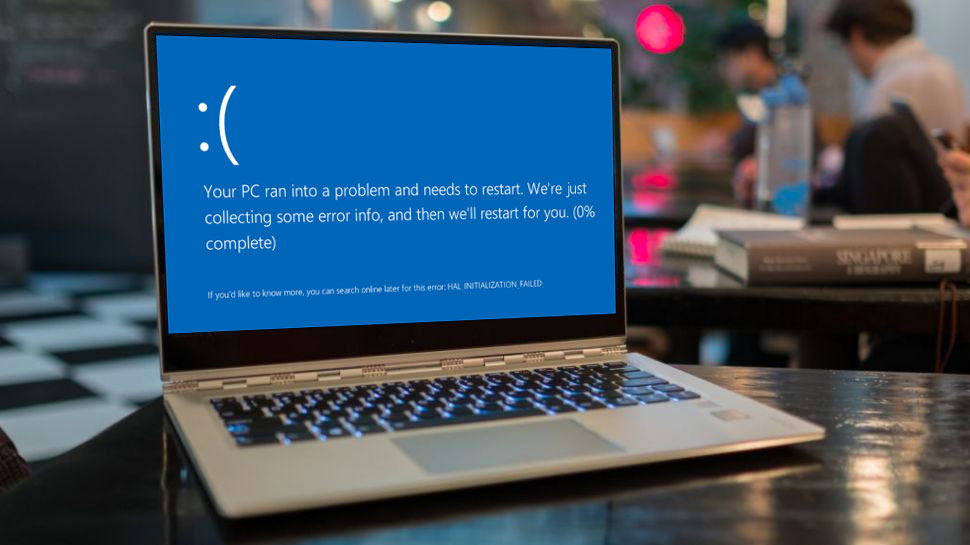
Users have been complaining about a new, very specific issue with the Windows 11 24H2 update. This time it affects Western Digital SSDs, more specifically owners of the SN770 and SN580. The bug has been causing crashes and triggering Blue Screens of Death, and it’s not clear yet just how many are affected as the 24H2 update rollout continues.
Owners of Western Digital’s SN770 and SN580 SSDs began noticing the crashes over a week ago. At first, it wasn’t clear what caused them, but the common denominator was they started after installing the 24H2 update. Users have made various attempts to fix the issues, and a temporary workaround has been found.
The nitty-gritty details
The issue is caused by the way the SN770 and SN580 handle data. These SSDs are DRAM-less. DRAM is Dynamic Random Access Memory, and it’s used to store and quickly retrieve metadata about stored files. If an SSD lacks DRAM, it means it will have to rely on an NVMe feature, Host Memory Buffer (HMB), where that metadata is stored in your PC’s main memory.
Normally the SSDs ask your PC to allocate 64 MB of HMB to store temp info, but with the update, the SSDs are asking for up to 200 MB, and sending the system into a frenzy from which the only possible escape is BSOD.
DRAM-less SSDs are usually affordable, budget drives. They are cheaper to make, and also consume less power, making them suited to laptops and mobile phones. They usually have a smaller form factor, too, because the DRAM chip increases the size of the SSD.
Performance does take a hit for this saving. Accessing memory via HMB introduces latency, particularly with read and write operations. Drives of this type are also prone to more issues because improperly managed HMB can cause, yep, you guessed it, BSODs. And they might not last as long either; their cells wear out faster, not benefiting from DRAM’s ability to clear old data and make way for the new (garbage collection).
User woes
As far back as Sep 10, members of WD’s community forum shared news of the bug. One user wrote:
After installed Windows 11 24h2 I got this in event viewer:
The driver detected a controller error on \Device\RaidPort1.
Blue Screen ands restart.
WD SN580 2TB. Firmware is updated to 281040.
WD Dashboard showing Drive Health 100%.
Any fix?
edit: Since I bought my pc 6 months ago I didn’t have any problems with Windows 23h2. Today installed 24h2 and after 10-15 restarts I got 4-5 blue screens with the same error “The driver detected a controller error on \Device\RaidPort1”.
Another user on the same thread wrote:
hey man i’ve been looking everywhere for info on this. just got a new pre-built pc with windows version 24H2. I have a WD blue SN 580 2 TB NVME and keep getting blue screens when restarting the pc or opening certain files in file explorer. the event logs leading up to the blue screen in event viewer give the same event ID 11 stornvme and volmgr error. You’re saying the main reason is the new windows update? would it be wise to roll back or have you figured anything out since your last post.
Then on 8 October, a WD community forum member posted a potential workaround, apparently bemoaning the lack of response from Western Digital and Microsoft:
While we still have no official answer neither from WD or MS, there is a workaround!
Thank you @nissel! This will create two registry entries. If you want to remove them again, delete them by hand or use this: Registry file to remove the HMB policy entries · GitHub 22. Apparently for some devices it is enough to just disable HBM: Windows Registry disable HMB · GitHub 19.
Does Microsoft deserve the hate?
Of course, no major OS updates are without issue. Windows 10’s now-infamous April 2021 KB5001330 update caused a slew of crashes, performance issues, and the long-feared BSODs. There were installation failures, missing files, performance drops in games, system crashes, and more. So, far the Windows 11 24H2 bugs aren’t nearly as bad.
Microsoft and Western Digital are aware of the issue, and patches and firmware updates are likely on their way. It remains to be seen if more users with similar SSDs will encounter the same issues.
Whatever exciting bugs are yet to come with Windows 11’s new version, we’ll be here to tell you about them.







